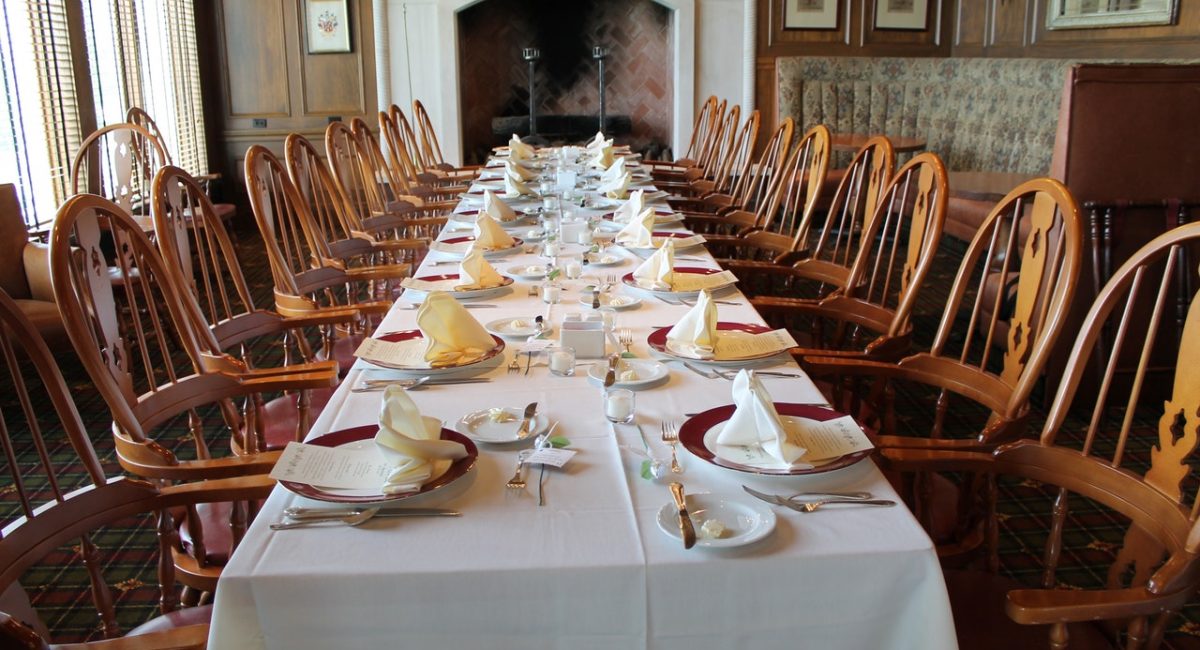Reflection for the 28th Sunday in Ordinary Time Year A.
– By Fr Ugo Ikwuka
Archway, London
A young man thinking of marriage went to his father and asked: “Dad, how much does it cost to marry.” The dad thought about it for a while and says: “Son, I can’t really tell you. I’m still paying”.
In today’s parable, a king invited people to his son’s wedding party and they failed to turn up based on work commitments. Understandably, the king felt humiliated but in a fit of rage he killed the people and burned down the city which many will consider an overreaction.
Consequently, the king threw the party open to all but had to throw out a man that came in without a wedding garment. This could equally be considered harsh especially given that it was him that invited everybody in.
It is therefore quite hard to associate this king with God as Jesus intended. But, in the land of the deaf, you have to shout to be heard; such exaggerated narratives are necessary to shake up and awaken a very secularised society that has lost the sense of God.
The grave reality which the parable depicts can help us appreciate the king’s extreme reaction. And the reality is that we are talking about an invitation from the King of kings (God the Father) who gave a banquet for the marriage of his only son (Jesus) to humanity, a marriage meant to offer us a share in the divine life.

The First Reading describes the menu as containing the choicest of foods and wines. At this banquet, death is destroyed forever. In other words, from this banquet, you walk into eternal life, not up to the till. If you are invited to such a banquet, you don’t start checking you diary to see if you are free. No! There can’t be a better invitation. Now, imagine the weird uninterested reaction of the invitees; one went off to his God-forsaken farm, another to his business and some lunatics not only ignored the invitation but went further to kill the messengers.
This is about the Kingdom of God and those who will eventually belong to it. The parable illustrates how God sent out his servants (a succession of prophets) to the people of Israel calling them to love and service. When God calls, there is always a sense of urgency and the time to respond is NOW. But we are told that the invitees were simply not interested.
And the scary thing about these absent invitees is that they are not sinners. No! They had gone about their legitimate concerns – one to his farm, the other to his business. Sometimes what keeps us away from the joy of the kingdom is not sin but preoccupation with the necessities of life. Some of us work round the clock supposedly to make ends meet; no time for God and no time for others. At the end of the day ends are never met. As Jesus prophesied ‘life is worth more than food and the body more than clothing!’ (Luke 12: 23-25).
How many of us are guilty of this today – closed to calls from God because we are so tied up in all kinds of concerns and anxieties about things which do not really matter or things that cannot guarantee us any real fulfillment and happiness?
God’s anger in the parable is a metaphor for His desire to see humanity respond to this invitation to life. And the destruction of the city following the failure to honour the invitation signals the spiritual destruction – aridity, lifelessness, violence, the culture of death that comes with refusing God’s divine invitation extended to us through the church and through our conscience.
With the refusal of those originally invited, the invitation was thrown open to all, good and bad alike, until the wedding hall is filled. There is now no elites or “chosen people”. The Church calls all to her bosom. It is, and always will be, a Church of both saints and sinners. Yes, it would be great to have a parish consisting only of totally dedicated Christians but that would not be truly representative of the love of God reaching out to all. It would not be truly a catholic church, a church for all.
But having thrown the doors open to all, the King throws out a man without a proper wedding gown. This appears unfair. Where was he expected to get the proper wedding garment at such short notice?
The point here is that the initial acceptance of grace is fundamental but not enough. Today, there is abuse of salvation as some preachers ask people to simply verbally accept Jesus as their personal Lord and Saviour and be saved. Those on the way to the kingdom must strive to acquire the moral and spiritual character in line with life in the kingdom.
By not wearing the wedding garment, the guest was physically in the party, but his mind and spirit were not there. This is the hypocrisy which Jesus condemned all through his ministry.
It is not surprising therefore that the parable ended on the realistic note that many are called, but few are chosen. It is a sad fact that although everyone is being called to experience the love of God in their lives, relatively few will take the plunge and really try to taste that experience.




